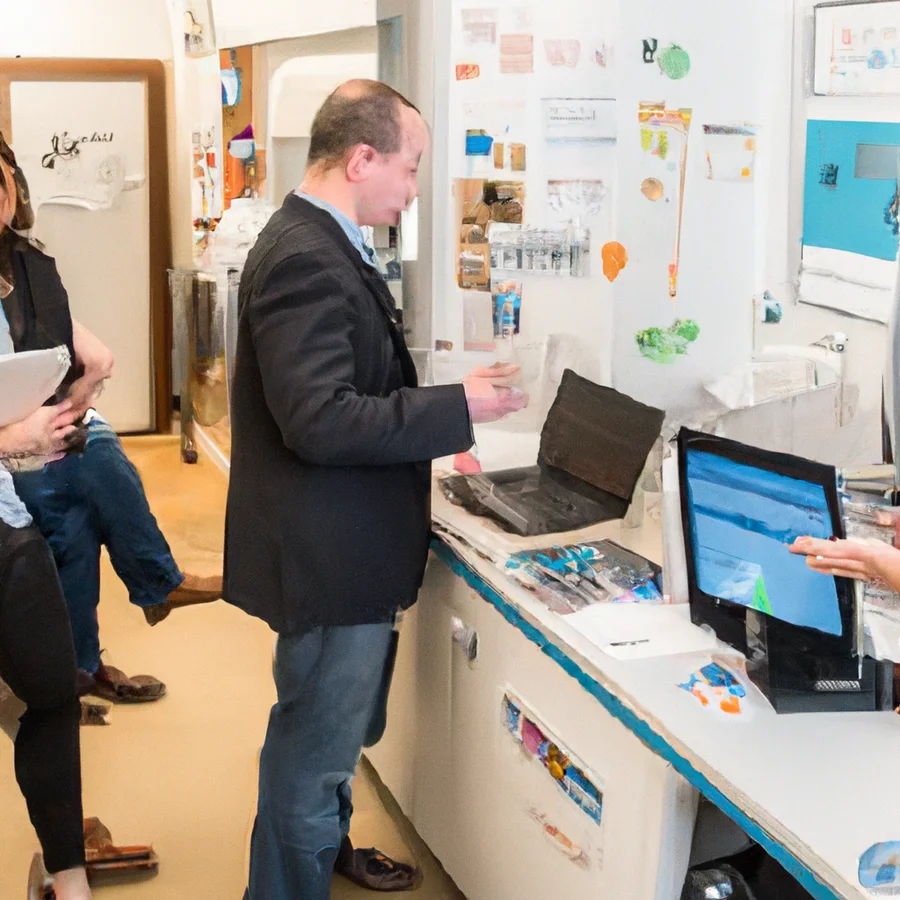AI in Nonprofits: Optimizing Operations and Enhancing Impact
Nonprofit organizations (NPOs) are the backbone of societal well-being. They address critical social issues and foster community development. However, they often grapple with limited resources, the need to retain donors, and the challenge of measuring their impact. Artificial intelligence (AI) is emerging as a game-changer. It offers innovative solutions to these challenges, helping nonprofits boost efficiency, streamline operations, and amplify their social impact.
This guide explores how nonprofits can leverage AI to achieve their missions more effectively. We’ll explore real-world applications, practical tips, and ethical considerations. Discover how AI in nonprofits can transform your organization and create lasting social change.
Understanding AI and Its Potential for Nonprofits
Before diving into specific applications, let’s clarify what AI is and what it can do. AI refers to computer systems designed to perform tasks that typically require human intelligence. Think of it as teaching computers to “think” and “learn” like we do.
Defining Artificial Intelligence
Artificial Intelligence (AI) encompasses a range of technologies. These include machine learning, natural language processing, and computer vision. Each of these technologies offers unique capabilities that nonprofits can leverage.
- Machine learning (ML) allows computers to learn from data without explicit programming. They identify patterns and improve their performance over time.
- Natural Language Processing (NLP) enables computers to understand, interpret, and generate human language. This powers chatbots and helps analyze text data.
- Computer vision allows computers to “see” and interpret images. This can be used for tasks like image recognition and analysis.
In essence, AI empowers nonprofits to automate tasks, gain insights from data, and improve decision-making. This ultimately leads to greater efficiency and impact.
Key Benefits of AI in Nonprofits
AI offers a multitude of benefits to nonprofits. These advantages span various aspects of organizational operations, from donor engagement to impact measurement.
- Enhanced Donor Engagement: AI helps nonprofits personalize their communications with donors. Tailored thank-you notes and impact updates improve donor satisfaction and retention.
- Operational Efficiency: AI automates repetitive tasks like data entry and scheduling. This frees up staff to focus on strategic, mission-critical work.
- Improved Client Support: AI chatbots provide real-time support to clients, answering questions and guiding them through complex processes. This makes services more accessible and scalable.
- Data-Driven Insights: AI helps nonprofits organize data and analyze their impact. This leads to better decision-making and allows them to demonstrate results to funders.
- Scalable Outreach: AI enables nonprofits to expand their communications without sacrificing personalization. This is crucial for maintaining relationships as donor bases grow.
These benefits translate into increased efficiency, improved program effectiveness, and greater overall impact for nonprofits.
Real-World Applications of AI in Nonprofits
Let’s explore specific ways nonprofits are using AI to optimize their operations and enhance their impact. These examples showcase the diverse applications of AI across various areas of the nonprofit sector.
AI in Human Resources
AI in nonprofits can transform HR functions. It helps retain top talent, advance the mission, and improve the quality of work life for employees. AI can alleviate staff shortages and scale operations with fewer resources. This allows HR teams to focus on initiatives that drive social change.
Practical applications:
- Automate routine tasks like payroll processing, onboarding, and leave management.
- Use AI-powered talent acquisition systems to streamline recruitment. This includes optimizing job postings, tracking qualified candidates, and managing communications.
- Implement HR chatbots to assist with employee training and provide a source of expertise within the organization.
By automating these tasks, HR teams can dedicate more time to strategic initiatives that support the organization’s mission.
AI for Impact Measurement
Measuring and evaluating the impact of programs is crucial for demonstrating effectiveness to stakeholders. AI can help nonprofits capture real-time data on a large scale and gain valuable insights into their outcomes.
Practical applications:
- Use AI to interpret data, make correlations, connect patterns, and understand trends.
- Ensure ongoing analysis and timely discovery of insights that reveal the true impact of the work.
- Build trust with stakeholders by validating the organization’s work with the community.
This data-driven approach not only validates the work of the nonprofit but also keeps the team motivated by showcasing the positive impact they are making.
AI in Fundraising Communications
Effective communication is vital for fundraising. AI can automate personalized donor communications, such as thank-you emails and acknowledgments. This saves time and keeps the nonprofit top of mind with supporters.
Practical applications:
- Use AI to segment donor data based on previous activity and predictive analysis.
- Tailor messaging to cater to specific donor preferences.
- Create different communication strategies for loyal recurring donors and one-time donors.
This targeted approach fosters greater engagement and ultimately leads to increased donations.
AI for Reporting & Data Analytics
Nonprofits generate vast amounts of data. Extracting meaningful insights can be challenging, especially with limited staff and time. AI-powered analytics tools can dissect data and provide valuable insights for decision-making and strategic planning.
Practical applications:
- Automate the generation of reports, reducing manual effort and ensuring accuracy.
- Eliminate the burden of manual data transfer between systems.
- Establish quality controls and ensure data integrity for informed decision-making.
By embracing automation, nonprofits can free up hundreds of hours to focus on their mission.
AI for Cost Reduction
One compelling aspect of automation is its ability to deliver a clear return on investment (ROI). Implementing AI can help nonprofits significantly reduce costs and increase efficiency.
Practical applications:
- Empower employees by freeing up their time for more valuable contributions.
- Automate repetitive tasks to reclaim a pool of hours that can be redirected toward strategic initiatives.
- Enhance the capacity to drive the nonprofit’s mission forward.
The goal is not to replace human staff with bots, but rather to augment their capabilities and allow them to focus on higher-level tasks.
AI in Finance & Accounting
Managing finances and ensuring accurate accounting records are essential for nonprofits. AI can automate routine finance tasks, minimizing errors and improving efficiency. AI can also assist in fraud detection and risk assessment.
Practical applications:
- Enhance visibility in finance departments by extracting and standardizing financial data.
- Streamline bank reconciliations and program journal entries.
- Bring a higher level of accuracy, efficiency, and control to financial processes.
This empowers nonprofits to allocate resources more effectively and maintain financial stability.
AI in Marketing
Effective marketing strategies are crucial for raising awareness and attracting donors. AI can automate repetitive marketing tasks like social media scheduling, content distribution, and email marketing.
Practical applications:
- Free up staff to focus on creative and strategic initiatives that drive engagement.
- Analyze audience behavior to identify preferences and optimize marketing campaigns.
- Build upon previous successful projects using generative AI to save time and refine messaging.
This approach maximizes efficiency, improves targeting, and delivers more impactful messages to the target audience.
AI in Management
AI offers invaluable support to nonprofit leaders across various aspects of organizational management. AI-powered forecasting models can provide insights into future trends and assist in strategic resource allocation.
Practical applications:
- Automate administrative tasks such as meeting scheduling, agenda preparation, and document management.
- Analyze post-event surveys to gain insights and improve future events.
- Automate volunteer email reminders to ensure smooth operations.
This allows leadership to redirect their attention to the core mission and values of the organization.
Tips to Start Using AI in Your Nonprofit
Implementing AI requires thoughtful






